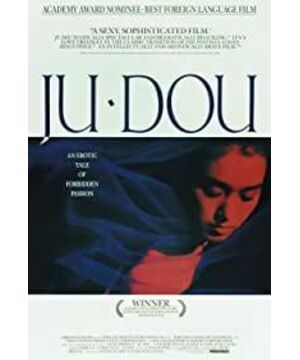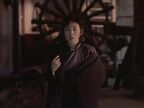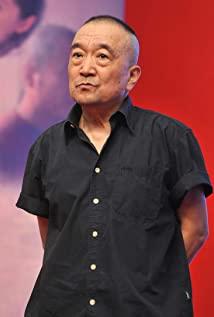modernization of "Judou" is rapidly disintegrating the ancient society's traditions and ethics that have been inherited for thousands of years. When people began to shout that the wolf is coming, they attributed the sin of moral depravity to the pursuit of money. But despite lamenting that people's hearts are not old, people don't want to go back in time. This is because of the advent of modernization, not only the romantic feelings of Fenghuaxueyue, but also those chilling and cannibalism are also swept into the garbage dump.
People miss the past to vent their dissatisfaction with the present. But it ignores all kinds of romantic memorials that are based on modernization. This sentiment of borrowing the past to satirize the present is also completely torn off by Zhang Yimou in "Ju Dou". The background of the film is set in the 1920s, an era when modern people are keen to discuss and recall. Despite the chaos in the world, it seems that there are many talents, and the heroes who save the world and the country seem to make the whole sky different from the haze of thousands of years. The turmoil of that era seems to have put a layer of blush on China, which has been slow and clumsy for thousands of years. But the truth is not that simple. The repressed China has not changed, the repressed Chinese ethics has not changed, and the repressed Chinese have not changed. The male and female protagonists played by Li Baotian and Gong Li seem to have gathered people’s pain and depression for thousands of years, and when the two confessed to each other in the wooden holes of the stables, the two fierce fires seemed to have been extinguished for thousands of years. Burning uncontrollably. And what burns is not only their bodies, but also their souls and destiny. The two could no longer leave each other, but what was helpless was that they could not do without the dyeing workshop. They can only suppress themselves, even if Gong Li repeatedly asks Li Baotian to take her away, in the end they can only choose to give up. There is no doubt that they are all sound people, but their limbs have already been chopped off by the cannibalism. They can only squeeze under the bridge or in the cellar to release each other's love and resentment. Countless times, in the face of the coming opportunities, they have never been able to sell their pace, and the only thing they did was to act on the bridge that they might have tried again and again at the funeral. I maintained my only face for the head of the family, for the family, and for the ethics of China as a whole, until I broke my head and cried.
In the final ending, the coming of death is nothing more than opening the door to another world for the two long-depressed bodies. This kind of death is not an accusation, nor is it bleak, as if the ancestors really heard the call of others, in such a way to make everything circulate, and let water and fire destroy and bury everything over and over again. I guess that karma will be constantly mentioned in the discussion of the neighbors after the incident, but in any case, the two depressed and painful souls can finally rest in peace.
This film can be regarded as one of Zhang Yimou's masterpieces. 28-year-old Gong Li and 48-year-old Li Baotian appropriately interpret the love and love between the older nephew and the younger aunt. The background of the story is impressive. Mu Kong, funerals, cellars, every scene ubiquitously interprets the deeply suppressed human nature. The film took place in the 1920s and was shot in the 1990s. The two are also considered to be eras of great change, great leap forward, great subversion and great liberation. The repression and unchanging restraint shown in it may make modern people feel thoughtful while lamenting. Has modernization changed China? What has changed? What is it that hasn't changed since ancient times, and will continue to sing its own melody, dominating everyone who lives in it? Each era will be marked with a number of unique marks in later generations, as if that era was so fresh or decayed, but people living in the big era may feel that the world has indeed changed, but in fact there is nothing. Change.
View more about Ju Dou reviews










